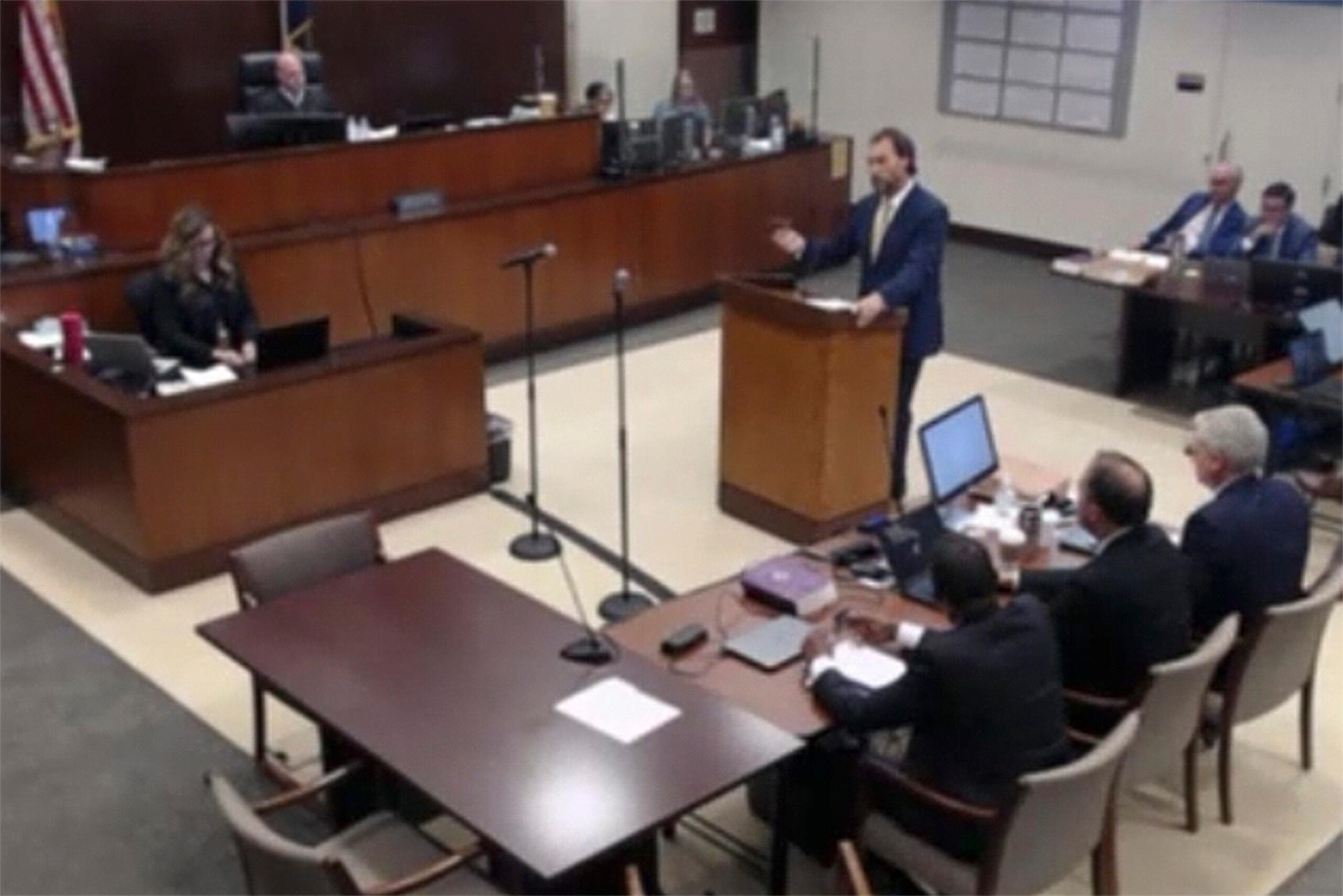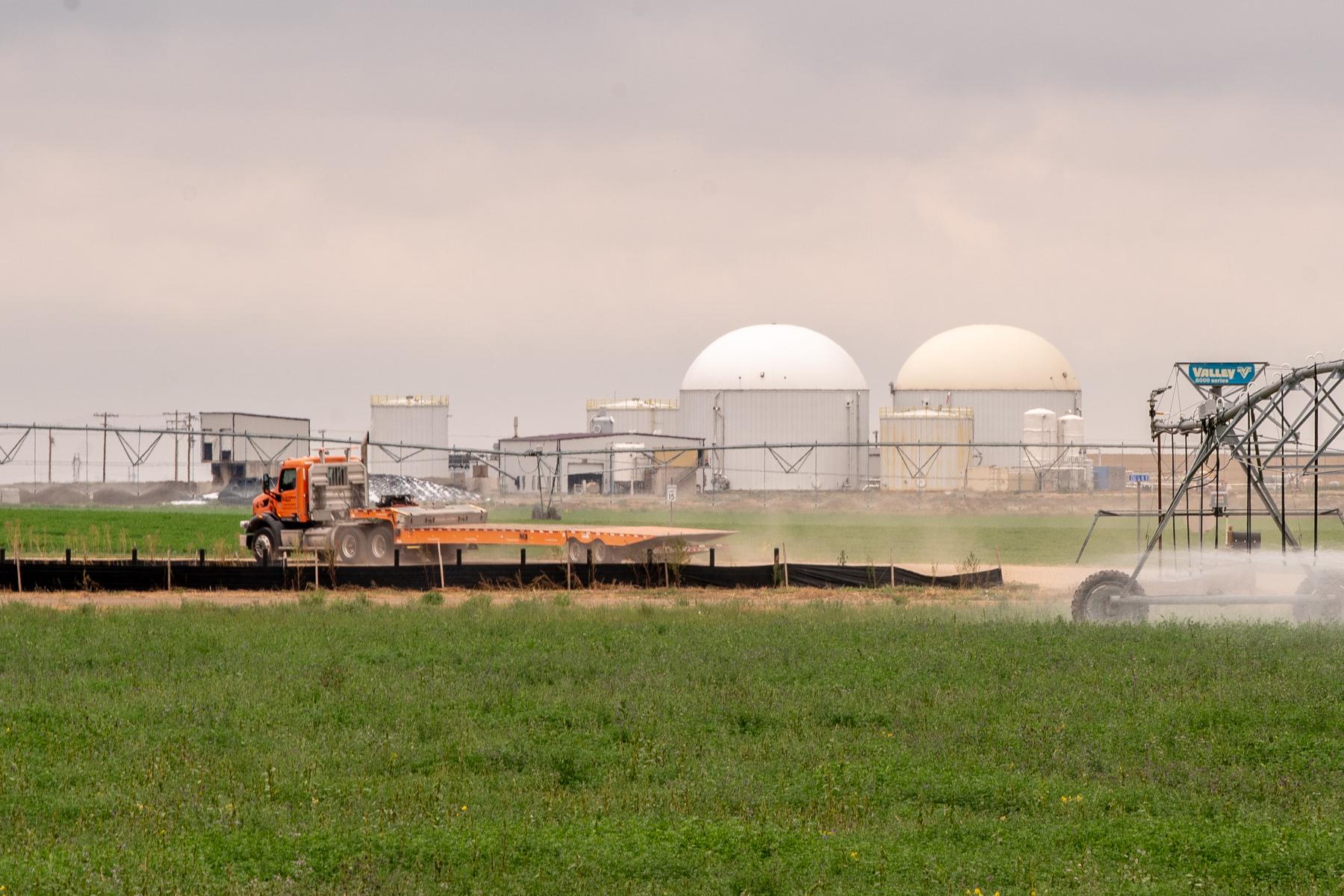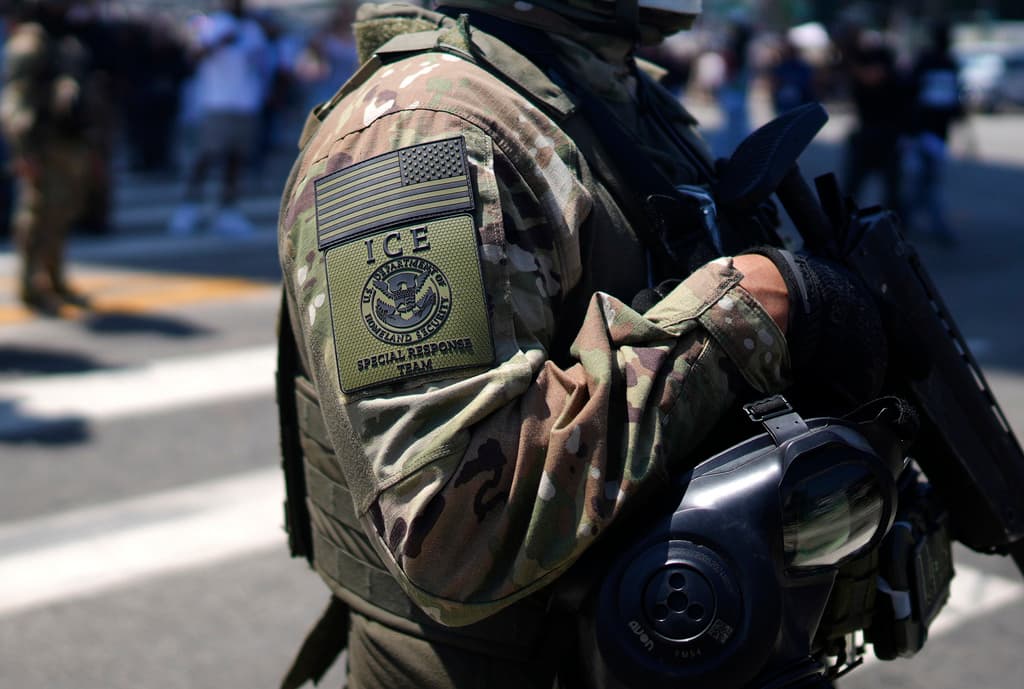
Live trial updates | Timeline of the Elijah McClain case
The trial for Aurora police officers Randy Roedema and Jason Rosenblatt charged in the death of Elijah McClain got off to a slow start Wednesday.
Before the court was in session, the defense lodged complaints with Judge Mark Warner over receiving supplementary reports following the testimony of yesterday’s expert witnesses — information considered a late disclosure. The prosecution failed to share reports of Tuesday’s testimonies of NMS Labs expert Robert Hessler and former Aurora Police Lt. Robert Wesner.
One of the reports at issue was about how much ketamine should’ve been administered to McClain based on weight. The defense said they would have cross-examined witnesses Hessler, Wesner and Dr. David Beuther differently had they received the reports on time.
Senior Assistant Attorney General Jason Slothouber admitted that those reports weren’t sent to the defense in a timely manner. The reports were sent out at 5 p.m. yesterday.
Harvey Steinberg, defense attorney for Rosenblatt, asked for a mistrial and for the prosecution to be sanctioned on the grounds of suspicion of more mistakes. Judge Warner denied that request.
Then, once the trial was ready to be called into session, the full jury hadn’t arrived.
Juror No. 12 had called the jury commissioner Wednesday morning to report a death in the family. The juror said his uncle had died and hadn't been able to sleep since the trial started.
Court was in recess until noon waiting for Juror No. 12 to arrive, at which point the judge had to convince him to stay. He said that the court would not be in session for the second Monday in a row. Oct. 2 is Cabrini Day in Colorado.
The juror chose to continue.
One witness on the stand for the half-day
Deputy Boulder Police Chief Stephen Redfearn took the stand and was there under a subpoena. He was a long-time employee at the department and eventually oversaw the Aurora Police Department’s Division of Operations. He was a captain on the night of Elijah McClain’s fatal encounter with police. He also served as a trainer for the police department and was considered expert testimony on training, protocols and practices of the department.
He was about a mile away on a homicide scene when he received the call about the incident on the night of Aug. 24, 2019.
“When I arrived onto Billings Street, there was an ambulance there that was literally pulling away as I was pulling up to the scene. I later learned that Mr. McClain was in that ambulance,” Redfearn said.
It was Redfearn who first considered the interaction as a critical incident once he learned that McClain was unconscious and not breathing in the ambulance. He described a critical incident as "when a police action results in someone being seriously injured or killed."
"Typically the critical incident protocol is used in officer-involved shootings. That's pretty cut and dry. But how we will also use that same protocol if someone dies while in our custody," Redfearn said.
He followed the protocol for such an incident.
“When I got there, I was informed that the initial interaction with Mr. McClain involved officers Nathan Woodyard, Roedema and Rosenblatt. And so initially, I directed them to be taken to headquarters,” Redfearn said. He said it was standard procedure to send officers away from the scene and back to the station during critical incidents.
And another administrative duty for Redfearn was updating the code for the dispatch call. He changed it from “suspicious person” to “assault on an officer.”
Redfearn said he made those changes in the dispatch log without investigating the incident, reviewing BWC footage, or interviewing any of the officers on the scene. No subsequent investigation was conducted at the time. He went off the information that was given to him from officers.
"Before this call was closed out, based upon the information that was provided to me by the sergeants, it went from a suspicious person to an assault based on the information," Redfearn said. "I changed it so it would accurately reflect the information I had been provided.”
He said the computer system didn’t have a category for attempting to disarm an officer after one said McClain tried to grab a gun.
Questions of reasonable suspicion
After a short afternoon break, the defense questioned Redfearn on the Aurora Police Department's policy on making contact under reasonable suspicion. He says the policy allows an officer to stop someone if they have reasonable suspicion.
“The policy essentially says that if an officer has reasonable suspicion to stop someone, they can use reasonable force to stop that person if the person does not stop,” Redfearn said.
He also said that it’s up to the officer to use force in various situations. But, there are times when a supervisor has directed someone to use force. Following questioning, Judge Warner instructed the jury that it was up to a court to determine concepts such as reasonable suspicion.
“Just because an officer thinks they may have it, does not mean it's a matter of law that they do,” Warner said.
Harvey Steinberg, attorney for Rosenblatt, challenged that decision to instruct the jury on the basis that his client didn’t have a chance to respond. He asked for a severance as the outcome did not apply to his client or a mistrial. Both motions were denied.
The day closed out with body-worn camera footage of McClain detained and ketamine administered. The footage closed out with him being put on a gurney.
Paula Hull, the City of Aurora 911 dispatcher on the night of the incident, was scheduled to finish her cross-examination Wednesday, but the shortened day and the length of Redfearn's testimony precluded her from taking the stand again.









